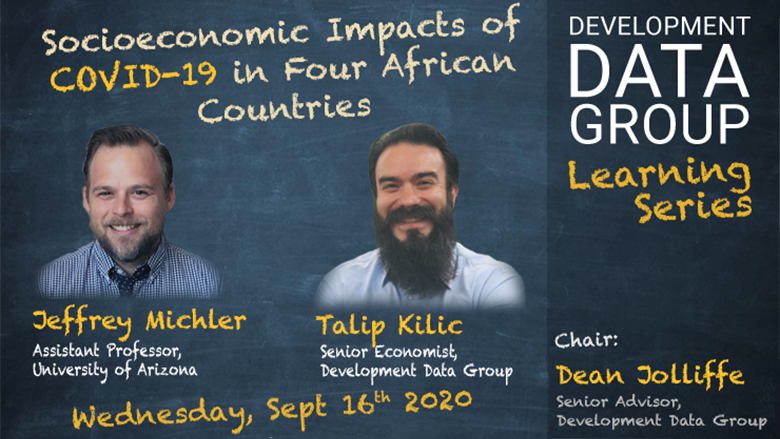Attempts to limit the spread of COVID-19 have taken a dramatic toll on the global economy. Our study provides an overview of the socioeconomic impacts of the pandemic among individuals and households in Ethiopia, Malawi, Nigeria and Uganda. The analysis is based on the data from the World Bank-supported monthly phone surveys conducted during the period of May-July 2020. In each country, the phone survey conducts monthly phone interviews with a national sample of households that had been interviewed face-to-face during the latest round of the national longitudinal household survey that had been implemented by the respective national statistical office (NSO), with support from the World Bank Living Standards Measurement Study - Integrated Surveys on Agriculture (LSMS-ISA) program. Our headline findings are fourfold. First, we find that although false beliefs regarding COVID-19 remain prevalent, decisive government action to limit the spread of the disease is associated with greater individual knowledge of the disease and increased uptake of precautionary measures. Second, an estimated 258 million individuals—80% of the population across 4 countries—live in households that have lost income due to the pandemic, with food insecurity being disproportionately borne by households that were already impoverished prior to COVID-19. Third, an estimated 20% to 25% of households in each country who sought medicine and staple food were unable to purchase these essentials. Finally, although 96% of primary-school-aged children attended school prior to the pandemic, only 17% of children have maintained contact with their teacher since the school closures. The need to understand the contemporaneous microeconomic impacts on individuals and households will continue to be important as governments and policymakers seek to mitigate the persisting effects of the pandemic.
Socioeconomic Impacts of COVID-19 in Four African Countries
September 16, 2020
Virtual Seminar
MULTIMEDIA
-
Talip Kilic is a Senior Economist at the World Bank Development Data Group; a member the Living Standards Measurement Study (LSMS) team; a core team member for the World Development Report 2021 on Data for Better Lives; and the focal point for the COVID-19 phone surveys that are supported by the World Bank LSMS team. His research focuses on poverty, agriculture, and gender in low- and middle-income countries, as well as survey methodology to improve the quality, timeliness and policy-relevance of household and farm surveys. In the latter line of work, objective measurement, including through sensor deployment; research on policy implications of non-classical measurement error in survey data; and integration with geospatial, census, administrative and mobile data are of interest to him.
Jeffrey Michler is an Assistant Professor in the Department of Agricultural and Resource Economics at the University of Arizona. His research focuses on applying the theories of industrial organization to environmental and natural resource issues in an international development context. His core research relies on applied micro theory, microeconometrics, and experimental economics. Dr. Michler’s most recent work has focused on the use of remote sensing to estimate adoption and yields of stress tolerant rice varieties in South Asia.
-
Join using WebEx
Meeting number
172 927 5092
Meeting password
89JThXDXVs2
